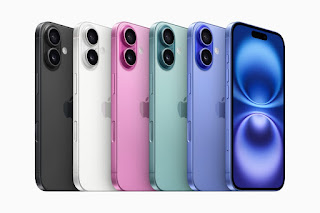Here's a comprehensive article about the iPhone, covering its history, features, impact, and future:
Here's a comprehensive article about the iPhone, covering its history, features, impact, and future:
The iPhone: Revolutionizing Communication and Technology
Introduction
Since its launch in 2007, the iPhone has transformed the landscape of mobile communication and technology. Developed by Apple Inc., the iPhone has set the standard for smartphones, combining sleek design with powerful features. This article explores the evolution of the iPhone, its key features, impact on society, and what the future may hold for this iconic device.
A Brief History
The iPhone was introduced by Steve Jobs on January 9, 2007, during a keynote address at the Macworld Conference & Expo in San Francisco. At the time, it was a groundbreaking device that combined a mobile phone, an iPod, and an internet communication device into one. The first-generation iPhone featured a 3.5-inch display, a 2-megapixel camera, and a minimalist design, instantly captivating consumers.
Over the years, Apple has released multiple iterations, each enhancing the previous model. The introduction of the App Store in 2008 further revolutionized the smartphone experience, allowing third-party developers to create applications that expanded the iPhone's functionality. The iPhone 4, released in 2010, introduced the Retina display, while the iPhone 6 and 6 Plus in 2014 marked the brand's foray into larger screen sizes.
Key Features and Innovations
The iPhone is renowned for its user-friendly interface and advanced technology. Some of its notable features include:
1. iOS Operating System: Apple's proprietary operating system, iOS, is designed for smooth performance and security. Regular updates ensure users have access to the latest features and improvements.
2. App Store: The App Store has become a cornerstone of the iPhone experience, offering millions of applications for various purposes, from productivity to gaming, education, and health.
3. Camera Technology: The iPhone is known for its exceptional camera quality. With each new model, Apple has improved camera capabilities, introducing features like Night Mode, Portrait Mode, and advanced computational photography.
4. Face ID and Touch ID: Apple has prioritized security with biometric authentication methods. Face ID, introduced with the iPhone X, uses facial recognition technology, while Touch ID, available in earlier models, employs fingerprint scanning for secure access.
5. Ecosystem Integration: The iPhone seamlessly integrates with other Apple products, including iPads, Macs, Apple Watch, and AirPods. This interconnected ecosystem enhances user experience, allowing for continuity across devices.
Impact on Society
The iPhone has had a profound impact on how people communicate and interact with technology. Its introduction has changed the way we access information, socialize, and conduct business. The rise of social media, mobile banking, and e-commerce can be attributed to the capabilities of smartphones like the iPhone.
Moreover, the iPhone has played a pivotal role in the proliferation of digital content, enabling users to capture and share moments instantly. The ease of access to the internet has democratized information, leading to a more informed society.
Challenges and Criticism
Despite its success, the iPhone has faced criticism and challenges. Concerns about privacy, security, and the environmental impact of electronic waste have prompted discussions about Apple's practices. Additionally, the high price point of iPhones has raised questions about accessibility for a broader audience.
The Future of the iPhone
As technology continues to evolve, the future of the iPhone remains promising. Speculations about upcoming features include advancements in augmented reality (AR), improved AI capabilities, and further integration of health-monitoring technologies. Apple's focus on sustainability may also influence future designs, with a push towards environmentally friendly materials and practices.
Conclusion
The iPhone has undoubtedly changed the way we live, work, and communicate. With its innovative features, strong ecosystem, and cultural impact, it remains a significant player in the smartphone market. As Apple continues to push the boundaries of technology, the iPhone is likely to evolve further, continuing to shape the future
of mobile communication for years to come.







Comments
Post a Comment